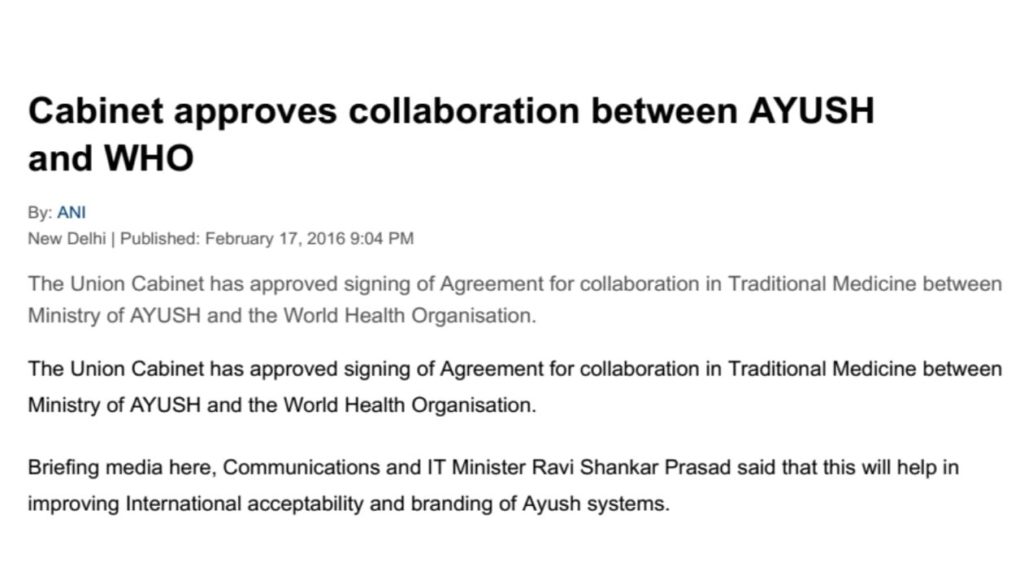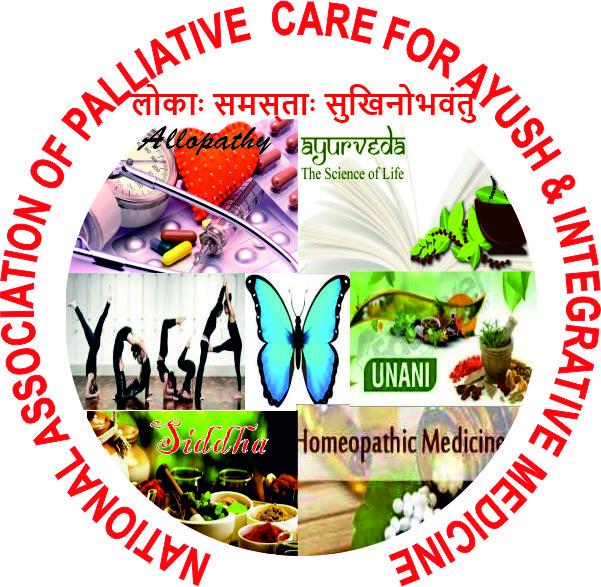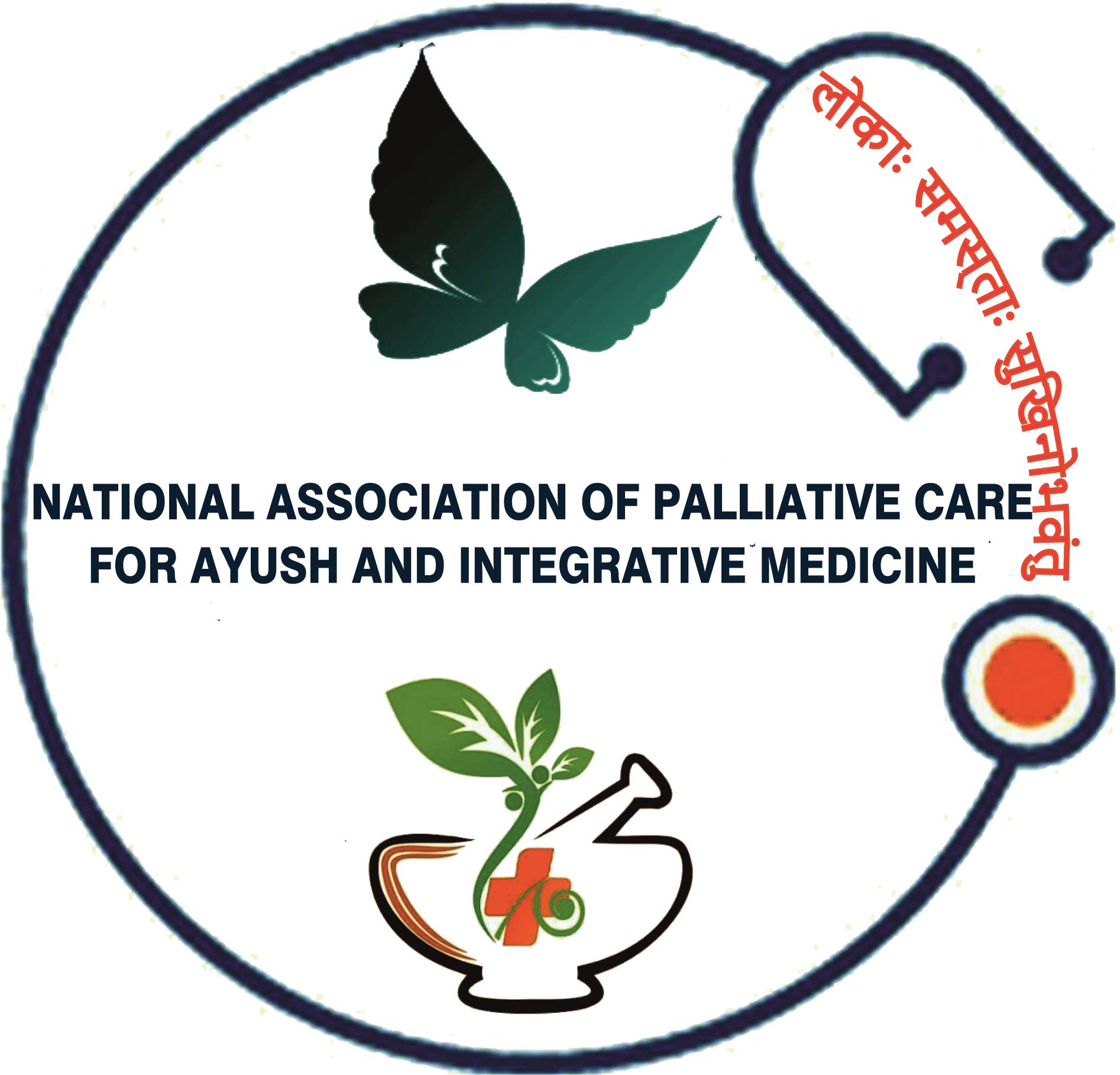AYUSH Interventions in Palliative Care
According to WHO, one in five people suffer from moderate to severe chronic pain and one in three are unable to maintain an independent lifestyle due to their pain. Roughly 60% of the people with chronic pain are unable to enjoy normal sleep, perform household chores, attend social activities, drive a car, walk or have sexual relations. The effect of pain means that relationships with family and friends are strained or broken.
Since ages, global social evolution leads to the development of different medical systems and beliefs. Rise of evidence-based medicines changed the scenario and brought the mysteries to social limelight.
India has abundance of its medicinal wealth used successfully for ages till replaced by modern system of medicine.
Ministry of AYUSH, Government of India is a signatory to historic Project Collaboration Agreement with World Health Organization for cooperation on promoting the quality, safety and effectiveness of service provision in traditional and complementary therapies. The PCA was signed by Ministry of AYUSH and World Health Organization at the WHO headquarters.

Time is ripe to explore the use of alternative medical systems in Palliative Care which are still widely used across the country at affordable price. It can improve the quality of life of the patients with life threatening diseases.
Establishment of National Association of Palliative Care for AYUSH & Integrative Medicine is a prelude to the integration of Palliative Care, which is already available in allopathy, with Ayurveda, Yoga & Naturopathy, Unani, Siddha and Homeopathy. It embarks upon a new mission to empower and promote AYUSH Professional and integrate Palliative Care with the AYUSH streams of medicine.
Professionals of various disciplines are invited to join hands with us to shoulder this major task and explore possibilities through research and development so that effective relief from pain and other distressing symptoms is achieved.
Along with this, we have to expand our area of service to the remote villages in India where a majority of patients are awaiting palliative care intervention.

